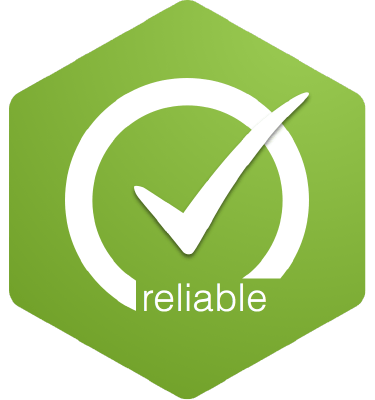
Understanding OCD vs OCPD
Obsessive-Compulsive Disorder (OCD) and Obsessive-Compulsive Personality Disorder (OCPD) are two mental health conditions that, while sharing some similarities in name and symptoms, are distinct in their nature and impact on daily life.
OCD is a mental health, anxiety disorder, disorder where individuals experience unwanted and intrusive thoughts, called obsessions, that cause significant anxiety. To manage this anxiety, they engage in repetitive behaviors or mental acts, known as compulsions. These compulsions are often time-consuming and can interfere with daily life.
OCPD is a personality disorder characterized by a chronic preoccupation with orderliness, perfectionism, and control. Unlike OCD, these traits are seen as appropriate and necessary by those who have OCPD, even though they can lead to significant problems in life.
OCD Symptoms
Obsessions: Fear of contamination, intense need for order, aggressive or harmful thoughts.
Compulsions: Excessive cleaning, arranging items in a specific way, repeated checking (like ensuring doors are locked), or mental rituals (like counting or praying).
IMPACT: OCD can be very disruptive, often making it difficult for individuals to perform everyday tasks, maintain relationships, or hold down a job
OCPD Symptoms
Perfectionism: Setting unrealistically high standards for oneself and others, leading to frustration when these standards aren’t met.
Preoccupation with Order: Being overly focused on rules, lists, schedules, and details.
Control: Feeling a strong need to control situations and people, often causing strain in relationships.
Work-Centric: Excessive dedication to work and productivity, neglecting leisure activities and friendships!
IMPACT: While OCPD can lead to efficient and productive behavior, it can also result in inflexibility, strained relationships, and a limited ability to relax and enjoy life.
Key Differences
Awareness and Acceptance:
OCD: Individuals with OCD are often aware that their thoughts and behaviors are irrational but feel powerless to stop them.
OCPD: Individuals with OCPD usually believe that their way of thinking and behaving is correct and necessary.
Nature of Symptoms:
OCD: Symptoms are driven by anxiety and involve specific, repetitive behaviors to relieve that anxiety.
OCPD: Symptoms involve a general pattern of perfectionism and control that pervades many aspects of life.
Impact on Life:
OCD: Can be severely debilitating, making everyday tasks and family and other relationships difficult to manage.
OCPD: Can lead to high achievement but often at the cost of family and other personal relationships and flexibility.
Emotional Response:
OCD: Obsessions cause significant distress, and compulsions are performed to alleviate this distress.
OCPD: Individuals usually feel justified in their behaviors and may not see them as problematic, even if they cause issues in their relationships or work lives.
Key Similarities
Focus on Order and Control:
Both disorders involve a significant focus on orderliness and control, though for different reasons and in different ways.
Interference with Daily Life:
Both conditions can interfere with daily functioning and relationships, though the nature and extent of this interference differ.
Treatment Approaches:
Both disorders can be treated with therapy, such as cognitive-behavioral therapy (CBT), and sometimes medication, though the specific treatment plans will vary based on the disorder and individual needs

While OCD and OCPD share some common ground in their focus on control and order, they are fundamentally different in their nature, causes, and impacts on daily life. Understanding these differences can help in seeking the right kind of help and support for each condition. If you or someone you know is struggling with symptoms of either OCD or OCPD, reaching out to a mental health professional is a crucial step towards managing and improving quality of life. See the categorization of mental health conditions.
The Bottomline
Benefits of Recovery from OCD or OCPD


Recovery from alcohol addiction brings numerous benefits:
Improved Mental Well-being:
Relief from the anxiety and distress caused by intrusive thoughts and compulsions.
A greater sense of calm and peace of mind.
Better Daily Functioning:
Enhanced ability to perform everyday tasks without being hindered by obsessions or perfectionistic tendencies.
Increased productivity and efficiency in both personal and professional life.
Stronger Relationships:
Improved interpersonal relationships as rigidity and controlling behaviors decrease.
Greater empathy and understanding towards others' perspectives and needs.
Enhanced Quality of Life:
Ability to enjoy hobbies, leisure activities, and social interactions more fully.
More balanced and flexible approach to life, reducing stress and frustration.
A Newfound Sense of Freedom:
Freedom from the constant need for order, control, and ritualistic behaviors.
Increased spontaneity and enjoyment in daily activities.
Control Over Your Life:
Empowerment through effective management of symptoms, leading to a more autonomous and satisfying life.
Reclaiming the life OCD and OCPD affected and discovering a path filled with hope and opportunity.
It's about reclaiming the life OCD and OCPD took away and discovering a path filled with hope and opportunity. At the Joy of Life Clinic, we're committed to guiding and supporting you through every step of your recovery journey.
Let's embark on this path together.

Psychiatric evaluation and management
Substance Abuse
We also provide these administrative services
Here're addiction problems we treat
Other nutrition and weight management services.
And we provide nutrition and weight management services to make your well-being even more complete
Don't let life's challenges define you—or your loved one—we are here to help you overcome and thrive!
Here're psychosocial and psychosomatic issues we treat
OUR PHILOSOPHY
Solutions, not judgement
We are committed to you and your loved ones; we admire your courage in seeking help and we respond with unwavering support and personalized treatment.
Our compassionate care is aimed at healing and growth, breaking down mental health barriers, and celebrating positive change. Together, we'll journey towards wellness, guided by empathy and expertise.

Home | About Us | Our Services | Blog | Terms & Conditions | Privacy | Telehealth | Forms & Resources | Appointments | Log In | Site Map | Contact Us
BY APPOINTMENT ONLY | NO WALK-IN
BEST WAY TO CONTACT US
Sign In to your account or Fill out the Contact Form or Appointment Form
or
Send us an Email at admin@jolclinic.com
Tel: (410) 231-3118 | Fax: (410) 262-6911
PATIENT RECORDS
To request your patient records, please sign in or go to the patient records information page.
Copyright © 2024 by the Joy of Life Clinic LLC.
4900 Belair Road
Baltimore MD 21206














